Three decades of support for ‘worthy and needy scholars’
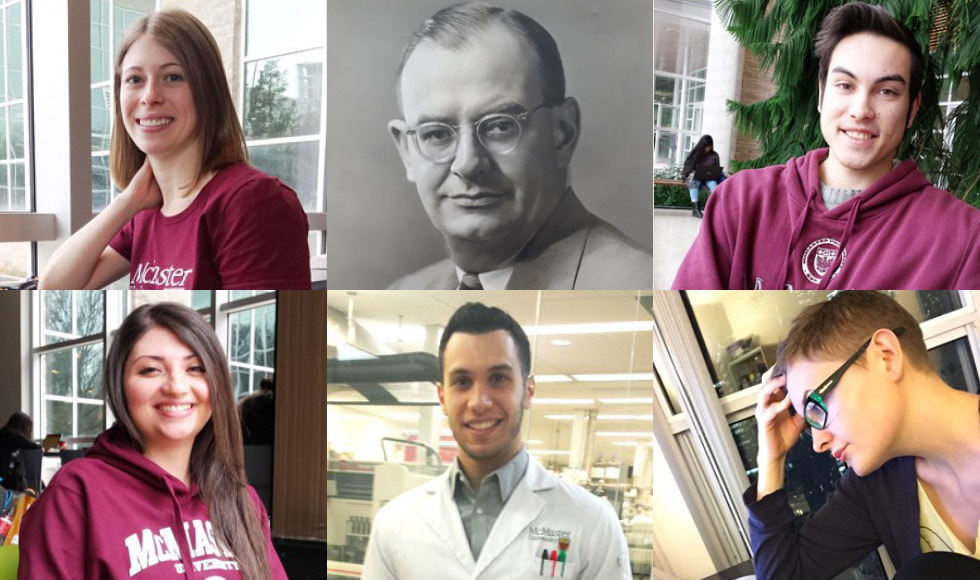
Top row from left to right: Bryanna Noade, Frederick K. Ashbaugh, Damian Tran. Bottom row left to right: Sara Jamil, Zaid Sameer, Spirit Waite
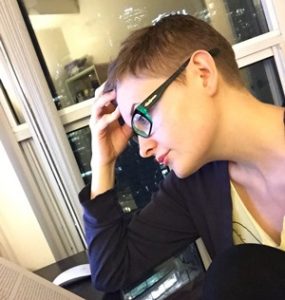 Thanks to support from the Ashbaugh Graduate Scholarship, Spirit Waite was able to move to Ontario from B.C. to pursue graduate studies at McMaster.
Thanks to support from the Ashbaugh Graduate Scholarship, Spirit Waite was able to move to Ontario from B.C. to pursue graduate studies at McMaster.
“I was fortunate enough to study my passion – religious history – under the instruction of some incredible professors in the History Department,” says Waite, who graduated with her MA in 2015.
Fittingly for a historian, she was interested in learning about the man whose bequest made her award possible.
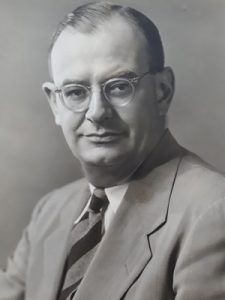 Frederick K. Ashbaugh (1903-1987) was educated at Ridley College in St. Catharines and Williams College in Massachusetts, where he received his BA in 1926 and MA in 1927. He worked for the federal government during WWII and then became a successful businessman.
Frederick K. Ashbaugh (1903-1987) was educated at Ridley College in St. Catharines and Williams College in Massachusetts, where he received his BA in 1926 and MA in 1927. He worked for the federal government during WWII and then became a successful businessman.
Debbie Pilles of Burlington has a vivid childhood memory of her grandfather and his library. “Every wall was filled with books,” she recalls. “There were simply walls of books!”
In his will, Ashbaugh left donations for several post-secondary institutions, each in honour of a family member.
The Ashbaugh Graduate Scholarship was established at McMaster in 1988, in memory of his maternal grandmother and in support of “worthy and needy scholars.”
Flash forward 30 years and countless worthy and needy McMaster students have benefited.
Thanks to Ashbaugh’s bequest….
Bryanna is studying how to build better bridges…
In high school, Bryanna Noade took a career aptitude test and was told she should be a butcher. Fortunately, she found her real passion during her third year of undergrad, when a work term took her to two suspension bridges in Halifax. “I fell in love with bridges. I find them so fascinating.”
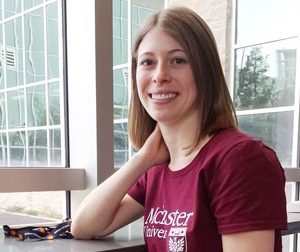
She chose McMaster for her Masters of Applied Science, because the Department of Civil Engineering was the perfect place to pursue her passion. Working under the supervision of Dr. Tracy Becker, Noade is exploring the many kinds of bearings that keep bridges working smoothly and safely.
A recipient of the Ashbaugh Graduate Scholarship in 2016/17, she was glad to learn more about Frederick Ashbaugh. “Having the story behind it makes it that much more meaningful,” she says. “It warms my heart.”
And her career aspirations? “As long as I’m working with bridges, I’ll be happy.”
Damian is using artificial intelligence to help cure leukemia…
“For most of human history, we’ve been making accidental medical discoveries,” says Damian Tran. He’s working to change that.
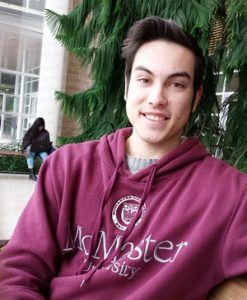 “I’m creating an artificial intelligence that can read leukemia datasets and predict targets for anti-leukemia pharmaceuticals,” explains Tran, an MSc candidate in the Hope Cancer Lab at the McMaster Stem Cell and Cancer Research Institute.
“I’m creating an artificial intelligence that can read leukemia datasets and predict targets for anti-leukemia pharmaceuticals,” explains Tran, an MSc candidate in the Hope Cancer Lab at the McMaster Stem Cell and Cancer Research Institute.
While artificial intelligence doesn’t yet find exact answers, it allows researchers to compile a list of “really promising possibilities,” says Tran, who completed his BScH in biochemistry at Mac in 2017. “I think it’s really cool how AI is able to help us narrow things down.”
Tran hopes to eventually extend his work to other cancers. “This has inspired me – it’s given me promise,” he says. The Ashbaugh Graduate Scholarship has funded his first year of master’s research.
“Thanks to a scholarship like this, it allows you to explore the creativity of your mind.”
Zaid is investigating an old drug in a new way…
Why did he choose McMaster for his grad studies? “The wonderful facilities and the world-class researchers,” Zaid Sameer replies at once. “It was an easy decision to make.” He’s now completing his first year as an MSc candidate in the Dr. Eric Brown Lab of the Department of Biochemistry and Biomedical Sciences.
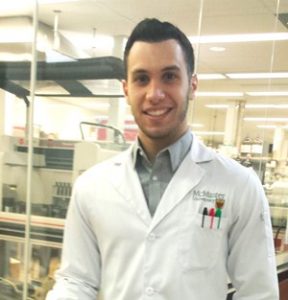
Sameer explains that bacteria are quickly becoming resistant to almost all antibiotics – a huge problem for health care.
“We’ve discovered that an old drug named pentamidine can be used in combination with common antibiotics to combat resistant bacteria,” says Sameer, who studies the interaction of the drug with bacteria at a molecular level.
The Ashbaugh Graduate Scholarship has helped fund his first year. Sameer is grateful to Frederick Ashbaugh, whose bequest is now helping to solve problems that didn’t even exist 30 years ago.
“This support definitely gives me motivation to keep working hard on trying to find solutions.”
…and Sara is exploring the possibilities of neuroscience and machine learning
In high school, Sara Jamil started to think about the possibilities in engineering. “I really liked the idea of pursuing biomedical engineering, because it brought together my interest in biology and engineering,” she says.
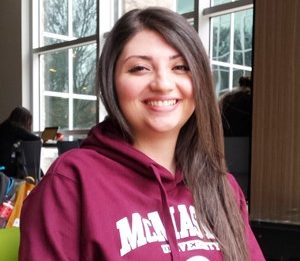 Jamil came to McMaster for a tour and felt an immediate connection. She not only completed her BEng in Electrical and Biomedical Engineering, she’s now finishing her MSc in the School of Computational Science and Engineering.
Jamil came to McMaster for a tour and felt an immediate connection. She not only completed her BEng in Electrical and Biomedical Engineering, she’s now finishing her MSc in the School of Computational Science and Engineering.
Working in the Performance Science Lab under Dr. Ranil Sonnadara, Jamil is focusing her research on “computational neuroscience” and “brain-computer interfacing.”
So, what does that mean exactly? One example would be to use encephalography (EEG) to detect and predict a person’s emotional state – such as, when a patient is in a coma.
The Ashbaugh Graduate Scholarship helped fund the first year of her master’s research. “It was tremendously helpful,” says Jamil. “I don’t think I would have been able to complete my master’s without this support.”


